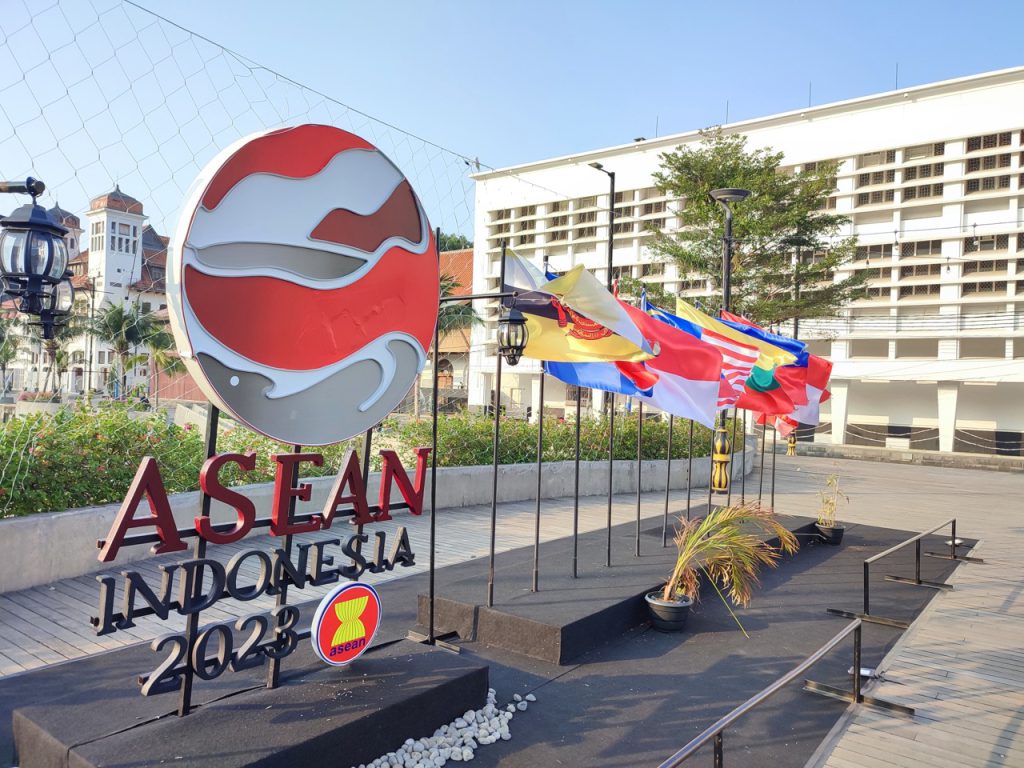Is there a secret to longevity? This health expert says 1,000% yes
In the era of social media, post-COVID, and with mental health at the forefront, a shift is taking […]

On Tuesday, Indonesia’s President Joko Widodo issued a cautionary message, advising against the Southeast Asia bloc becoming entangled in the power struggles of major nations. This warning came as regional leaders gathered for a summit aimed at addressing concerns about divisions related to peace efforts in Myanmar and reaffirming the significance of their diverse alliance.
The Indonesian President, while inaugurating the summit of the 10-member Association of Southeast Asian Nations (ASEAN), urged the group to develop a “long-term tactical strategy that is relevant and meets people’s expectations”. Widodo emphasized that ASEAN had unanimously agreed not to serve as a proxy for any global powers and urged against transforming their collective platform into a destructive arena of rivalry.
Indonesia is hosting this week the 43rd Association of Southeast Asian Nations (ASEAN) Summit in Jakarta. Additionally, a series of other significant regional meetings are taking place in conjunction with this event, including the ASEAN Plus Three Summit and East Asia Summit.
These meetings present valuable occasions for leaders within the ASEAN bloc to engage in discussions about political and security matters. They also provide opportunities for dialogues with key partners like the United States and China on these important issues.
Established during the Cold War era in the 1960s to counteract the spread of communism, ASEAN places a premium on unity and non-interference in the internal affairs of its member states. However, critics argue that this principle has limited ASEAN’s ability to address issues such as the ongoing violence in Myanmar, which has persisted since the military coup of 2021.
While ASEAN has excluded Myanmar’s military leaders from its high-level meetings, differences have emerged within the group. Indonesia has sought to engage all sides to advance an ASEAN peace plan, while Thailand has attempted to engage Myanmar’s military leadership. Malaysia, on the other hand, has called for “robust” actions against the generals, citing their obstruction of the ASEAN peace initiative.
The ongoing violence in Myanmar, which has persisted since the military coup two years ago, is beginning to have repercussions within the regional bloc. Recent reports indicate that the ruling military junta has decided to forego Myanmar’s scheduled turn as the chair of ASEAN in 2026. Furthermore, the conflict in Myanmar is casting a shadow over the bloc’s plans to admit Timor-Leste as a new member. Last month, Myanmar’s military junta ordered the expulsion of Timor-Leste’s top diplomat due to a meeting his government had with their opponents, the civilian National Unity Government (NUG). Timor-Leste’s Prime Minister Xanana Gusmao had previously stated that his country would not join ASEAN unless the crisis in Myanmar is resolved.
Other countries have other problems that need to be tackled. Before leaving for the summit, South Korean President Yoon Suk Yeol wants to advocate for a more robust response to North Korea’s missile and nuclear programmes during summit discussions this week. He asserted that these weapons represent a fundamental threat to the region.
The looming rivalry between China and the United States also casts a shadow over the summit. Some ASEAN members have cultivated close diplomatic, economic, and military ties with Beijing, while others exercise caution.
The timing of the summit is noteworthy as China recently released a map featuring a “10-dash line,” outlining its expansive claims in the South China Sea. This move is likely to add urgency to negotiations for a long-awaited code of conduct in this strategically important region. Malaysia, Vietnam, and the Philippines, ASEAN member states with overlapping claims in the South China Sea, have rejected China’s map.
Later in the week, ASEAN leaders will convene for an East Asia summit, a broader forum that includes China, India, Japan, Russia, and the United States. Notably, U.S. President Joe Biden is not attending the talks, with Vice President Kamala Harris representing the United States. Chinese Premier Li Qiang will also be in attendance.

In the era of social media, post-COVID, and with mental health at the forefront, a shift is taking […]

With its fast speeds and revolutionary potential, 5G stands out as a noteworthy milestone in the field of […]